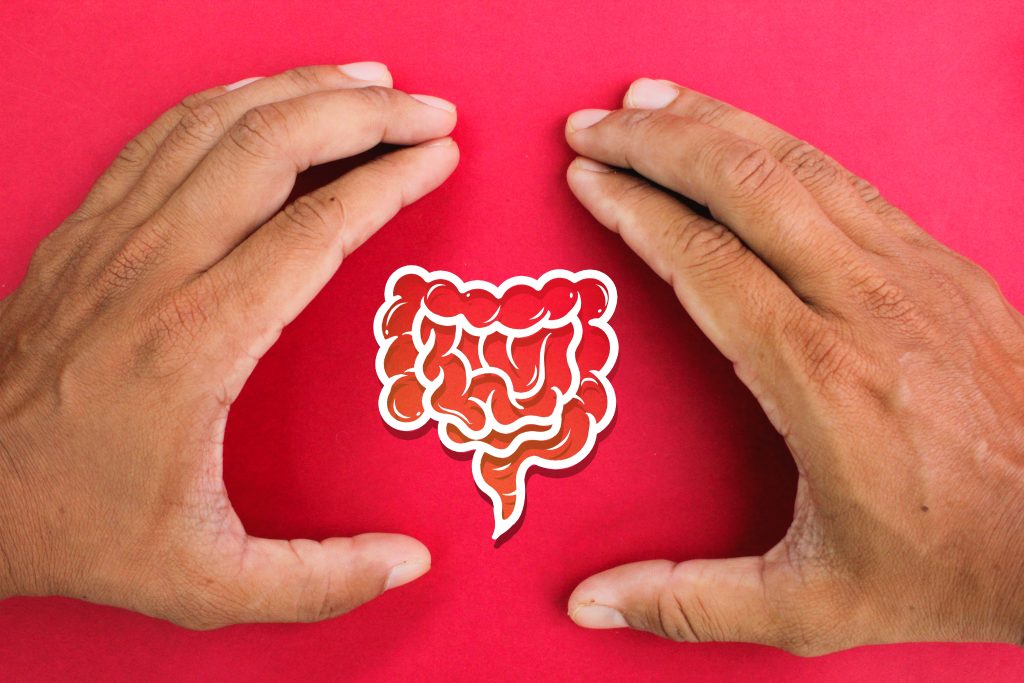Gut health is essential for maintaining overall health and well-being. Your digestive system plays a critical role in breaking down food and absorbing nutrients, which is necessary for the proper functioning of your body. Poor gut health can lead to a range of health problems, including digestive issues, inflammation, and autoimmune disorders. Therefore, it’s crucial to take care of your gut health by making healthy lifestyle choices and following a balanced diet. In this article, we’ll discuss the importance of gut health and provide some tips on how to improve your digestion for better overall health.
Contents
- 1 The Basics Of Gut Health
- 2 Signs Of Poor Gut Health
- 3 Factors That Affect Gut Health
- 4 Tips To Improve Digestion And Gut Health
- 5 Include Fiber In Your Diet
- 6 Eat Probiotic-Rich Foods
- 7 Take A Prebiotic Supplement
- 8 Limit Processed Foods
- 9 Get Regular Exercise
- 10 Supporting Your Gut Health And Improving Your Digestion Is Vital!
The Basics Of Gut Health
When it comes to overall health, many people tend to focus on external factors such as diet and exercise. However, the state of your gut health can have a profound impact on your overall well-being. Your gut is home to trillions of bacteria, fungi, and other microorganisms collectively known as the microbiome. These microorganisms play a crucial role in digestion, immune function, and even your mood.
In order to understand how to maintain a healthy gut, it’s essential to understand the different types of bacteria that make up microbiomes. The most common types are Firmicutes and Bacteroidetes, which help break down food and absorb nutrients. Other bacteria, such as Actinobacteria and Proteobacteria, help regulate the digestive system, while Lactobacillus species produce lactic acid to keep your gut in balance.
Signs Of Poor Gut Health
Signs of poor gut health can manifest in different ways, such as bloating, constipation, or diarrhea. These symptoms can cause discomfort and affect your overall quality of life. However, poor gut health is not just a nuisance but can also impact your long-term health.
When your gut is not functioning correctly, it can affect your immune system and lead to inflammation, which increases the risk of developing chronic health conditions such as autoimmune diseases, mental health disorders, or even some cancers. Understanding the warning signs of poor gut health can help you better care for your overall health and well-being.
Factors That Affect Gut Health
The food you eat, how you live your life, and even your stress levels can significantly impact your gut microbiome and digestive system. What you put into your body matters as your gut bacteria thrive on certain foods, and a diet high in processed foods and sugar can lead to an imbalance in your gut flora. Additionally, leading a sedentary lifestyle and being chronically stressed can take a toll on your digestive system, leading to issues such as a leaky gut.
Certain foods, such as refined grains, artificial sweeteners, and alcohol, can also negatively affect gut health. It’s crucial to prioritize gut health by consuming a balanced diet rich in fiber, healthy fats, and fermented foods and engaging in stress-reducing activities such as yoga or meditation. By being mindful of these factors, you can support the health of your gut and, ultimately, your overall well-being.
Tips To Improve Digestion And Gut Health
Once you understand the basics of gut health and identify potential triggers, taking actionable steps to improve your digestion is important. Here are some tips for promoting optimal gut health:
Include Fiber In Your Diet
Many people may not realize the importance of fiber in their diets for proper digestion and gut health. Fiber plays a crucial role in keeping your digestive system running smoothly by promoting regular bowel movements and preventing constipation. It also helps keep your gut healthy by nourishing the good bacteria in your gut, which is essential for your overall well-being.
Incorporating fiber into your diet doesn’t have to be complicated; simply adding more fruits, vegetables, whole grains, and legumes can help increase your fiber intake. And if you find that you are not getting enough fiber through your diet, consider taking a supplement.
Eat Probiotic-Rich Foods
Another effective method for promoting gut health is by incorporating probiotic-rich foods into your diet. Probiotics are living microorganisms that provide numerous health benefits, including aiding in digestion by replenishing the good bacteria in your gut. These beneficial bacteria can improve bowel regularity, reduce inflammation, boost immune system function, and even alleviate symptoms of certain gastrointestinal disorders.
Common sources of probiotics include yogurt, kefir, sauerkraut, kimchi, and kombucha. By regularly consuming these foods, you can support your digestive health and reap the benefits of a happy gut.
Take A Prebiotic Supplement
With the rise of unhealthy eating habits and the use of antibiotics, your gut flora can become imbalanced. This is where prebiotic supplements come in handy. Unlike probiotics that contain live microorganisms, prebiotics are non-digestible fibers that promote the growth of good bacteria already present in your gut. These supplements can help regulate bowel movements, reduce inflammation, and even improve brain function.
It’s important to note that not all prebiotic supplements are created equal, so choosing one that contains the right types of fiber to meet your specific needs is important. Incorporating a prebiotic supplement into your daily routine can help support your digestive health and overall well-being.
Limit Processed Foods
In today’s fast-paced world, processed foods have become a standard fixture in many people’s daily diets. However, what you may not realize is that consuming these foods can have detrimental effects on your digestive health. The presence of preservatives, additives, and artificial sweeteners can disrupt the balance of good and bad bacteria in your gut, leading to a host of digestive issues.
Furthermore, these foods are often low in fiber, leading to constipation and further digestive problems. To maintain gut health, it’s best to limit your intake of processed foods as much as possible and opt for fresh, unprocessed options instead.
Get Regular Exercise
Many people are surprised to learn that exercise can have a significant impact on digestion and gut health. Not only does regular physical activity stimulate the muscles in the digestive tract, but it also helps to maintain a healthy weight and reduce stress levels – two factors that can contribute to digestive issues.
In fact, research has shown that just 30 minutes of moderate-intensity exercise per day can improve gut motility and reduce inflammation in the gut. So if you’re looking to improve your digestion and overall gut health, adding regular exercise to your routine may be a simple and effective solution.
Supporting Your Gut Health And Improving Your Digestion Is Vital!
Knowing how to support your gut health and improve your digestion can be the key to achieving optimal well-being. By making simple dietary changes and incorporating certain supplements, you can give your digestive system the nourishment it needs for optimal health. Additionally, regular exercise can help to reduce inflammation and improve gut motility. So if you want to promote digestive health, try adding these tips to your daily routine.










